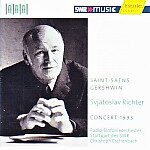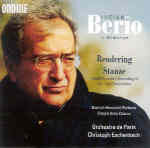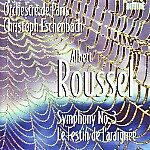

There’s a reason these well-produced radio recordings could not be released while Sviatoslav Richter was alive: they are dreadful. Both works, except for the exotic

Hard as it may be to believe, this is the fourth recording of Rendering, and the second by Christoph Eschenbach. It’s not all that different

This is a mixed bag. The Francesa da Rimini is wonderful, as Christoph Eschenbach–and the Philadelphia strings–really wring out the work’s drama and emotion, especially

Christoph Eschenbach has evolved into a heavily mannered, interventionist, even perverse interpreter, and it’s very nice to be able to report that those qualities are

Christoph Eschenbach’s warm and deeply felt Brahms Fourth Symphony is a strong contrast to the more usual tautness and muscularity we hear in this work.

Roussel’s First Symphony, subtitled “The Poem of the Forest”, is so seldom played or recorded that it’s faint praise to hail this newcomer as the

Let’s leave aside the nonsensical coupling and focus on the music. Hindemith’s Klaviermusik, composed in 1923, resurfaced in 2002, and might as well have remained

Christoph Eschenbach’s failed career in Philadelphia doesn’t come as a surprise. As an interpreter, he takes big risks and can be wildly inconsistent. His current

Christoph Eschenbach usually does pain and angst particularly well, so you would think that Shostakovich would be right up his alley. Not so. Yes, he

This final disc in Christoph Eschenbach’s Roussel cycle turns out to be disappointing. It contains the composer’s most famous work, the Third Symphony, in a
![]()
